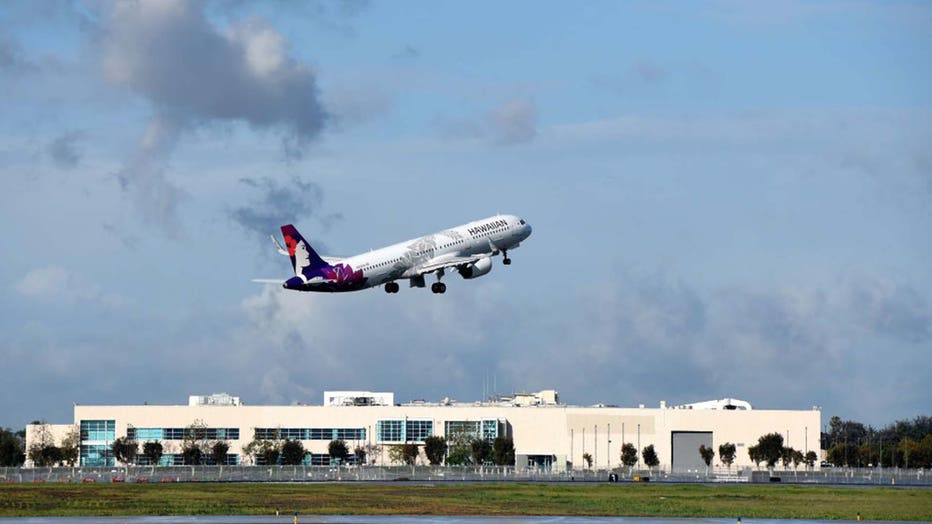Hawaii considers COVID-19 booster shot requirement for all visitors
Hawaii’s governor is considering requiring COVID-19 booster shots for travelers to the state after a recent surge in cases.
During an interview on Honolulu Star Advertiser’s "Spotlight Hawaii" on Jan. 10, Gov. David Ige said that he was "looking at" potentially requiring booster shots.
"We definitely are looking at the change in CDC guidance and looking at what is required to implement it," Ige said. "As you know the CDC did change the requirement, instead of a 10-day quarantine, they did change it to a 5-day quarantine with five days of wearing masks. So we are looking at that and making those changes. We also are looking at the boosters and what the CDC is now saying is about up-to-date vaccinations. That we want to see a booster shot for those who are fully vaccinated within five or six months of completing their vaccination regimen. We are looking to see what actions are necessary to implement that in Safe Travels."
Currently, Hawaii is requiring travelers who are unable to produce a negative COVID-19 within 72 hours or proof of vaccination to quarantine for five days upon arrival to the state, according to Hawaii’s Safe Travels Program.
Anyone who wishes to bypass the mandatory quarantine can do so by submitting proof of vaccination or a negative test result to the Safe Travels Program website.

FILE - The Hawaiian Airlines"u2019 inaugural service to Maui"u2019s Kahului Airport on takeoff in Long Beach on Wednesday, March 10, 2021.
RELATED: Omicron vs. delta: Study examines difference between two coronavirus variant symptoms
Meanwhile, Hawaii recorded a significant increase in COVID-19 hospitalizations last week as the omicron variant continued to spread throughout the islands.
Hawaii, with a population of about 1.5 million people, reported more than 6,252 new cases on Jan. 18.
Last week, Queen’s Health Systems announced an "internal state of emergency" for its hospital in west Oahu.
"Queen’s is experiencing the widespread effects of community exposures from the omicron variant," said Jill Hoggard Green, president and CEO of The Queen’s Health Systems, in a statement.
She said more than 800 local health care workers were unable to work this week because of close contacts or confirmed COVID-19 infections.
Contracted health care workers arrived in Hawaii over the weekend to help hospitals that were short-staffed and nearing capacity.
About 250 workers — mostly nurses — from the mainland came to help with the surge in COVID-19 hospitalizations, the Honolulu Star-Advertiser reported.
"Most of our hospitals, in terms of staffing, are either stretched or at critical staff levels," said Hilton Raethel, Healthcare Association of Hawaii’s president and CEO.
Another 250 workers will arrive the following weekend as part of a plan to bring more than 900 temporary health care professionals.
RELATED: CDC encourages N95, KN95 masks to stop COVID-19 spread amid omicron surge
The program could be funded by the Federal Emergency Management Agency, but Raethel said the application process is not yet completed.
"We made the decision last Friday that we could not afford to wait for the official green light from FEMA because of the acute need in our hospitals," he said.
The seven-day rolling average for daily new COVID-19 deaths in the United States has been trending upward since mid-November, reaching nearly 1,700 on Jan. 17 — still below the peak of 3,300 in January 2021. COVID-19 deaths among nursing home residents started rising slightly two weeks ago, although still at a rate 10 times less than last year before most residents were vaccinated.
Despite signs that omicron causes milder disease on average, the unprecedented level of infection spreading through the country, with cases still soaring in many states, means many vulnerable people will become severely sick.
The Associated Press contributed to this report.

